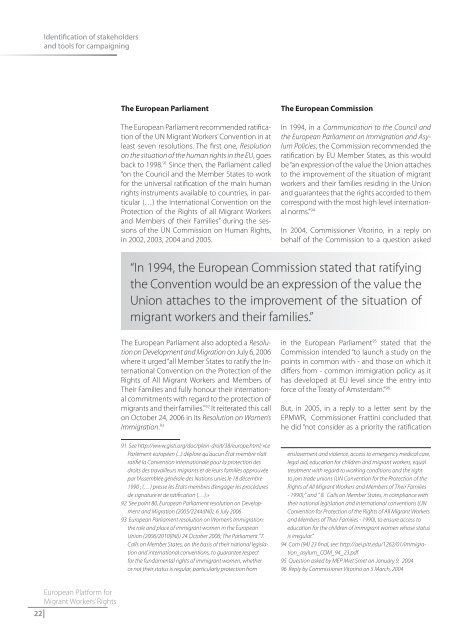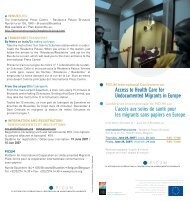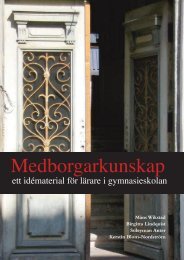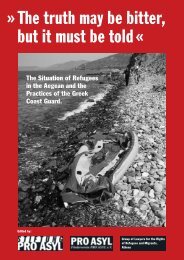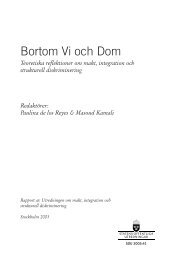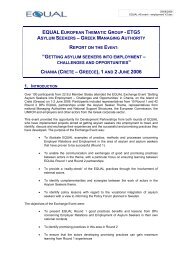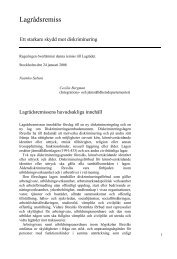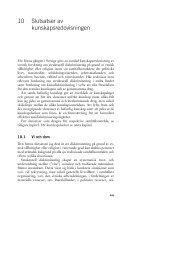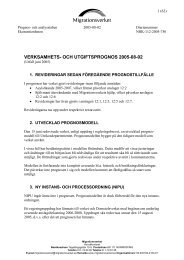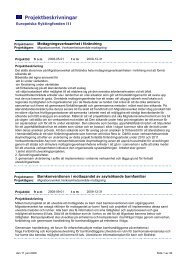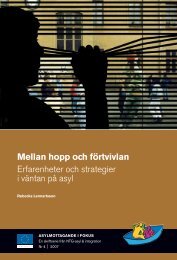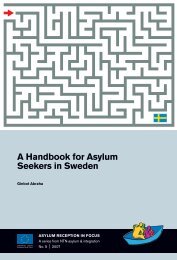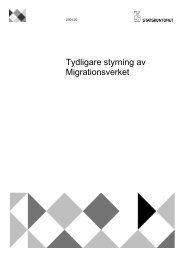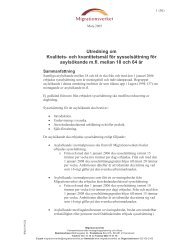The UN Migrant Workers Convention: Steps Towards Ratification
The UN Migrant Workers Convention: Steps Towards Ratification
The UN Migrant Workers Convention: Steps Towards Ratification
Create successful ePaper yourself
Turn your PDF publications into a flip-book with our unique Google optimized e-Paper software.
Identification of stakeholders<br />
and tools for campaigning<br />
<strong>The</strong> European Parliament<br />
<strong>The</strong> European Parliament recommended ratification<br />
of the <strong>UN</strong> <strong>Migrant</strong> <strong>Workers</strong>’ <strong>Convention</strong> in at<br />
least seven resolutions. <strong>The</strong> first one, Resolution<br />
on the situation of the human rights in the EU, goes<br />
back to 1998. 91 Since then, the Parliament called<br />
“on the Council and the Member States to work<br />
for the universal ratification of the main human<br />
rights instruments available to countries, in particular<br />
(…) the International <strong>Convention</strong> on the<br />
Protection of the Rights of all <strong>Migrant</strong> <strong>Workers</strong><br />
and Members of their Families” during the sessions<br />
of the <strong>UN</strong> Commission on Human Rights,<br />
in 2002, 2003, 2004 and 2005.<br />
<strong>The</strong> European Commission<br />
In 1994, in a Communication to the Council and<br />
the European Parliament on Immigration and Asylum<br />
Policies, the Commission recommended the<br />
ratification by EU Member States, as this would<br />
be “an expression of the value the Union attaches<br />
to the improvement of the situation of migrant<br />
workers and their families residing in the Union<br />
and guarantees that the rights accorded to them<br />
correspond with the most high level international<br />
norms.” 94<br />
In 2004, Commissioner Vitorino, in a reply on<br />
behalf of the Commission to a question asked<br />
“In 1994, the European Commission stated that ratifying<br />
the <strong>Convention</strong> would be an expression of the value the<br />
Union attaches to the improvement of the situation of<br />
migrant workers and their families.”<br />
<strong>The</strong> European Parliament also adopted a Resolution<br />
on Development and Migration on July 6, 2006<br />
where it urged “all Member States to ratify the International<br />
<strong>Convention</strong> on the Protection of the<br />
Rights of All <strong>Migrant</strong> <strong>Workers</strong> and Members of<br />
<strong>The</strong>ir Families and fully honour their international<br />
commitments with regard to the protection of<br />
migrants and their families.” 92 It reiterated this call<br />
on October 24, 2006 in its Resolution on Women’s<br />
Immigration. 93<br />
in the European Parliament 95 stated that the<br />
Commission intended “to launch a study on the<br />
points in common with - and those on which it<br />
differs from - common immigration policy as it<br />
has developed at EU level since the entry into<br />
force of the Treaty of Amsterdam.” 96<br />
But, in 2005, in a reply to a letter sent by the<br />
EPMWR, Commissioner Frattini concluded that<br />
he did “not consider as a priority the ratification<br />
91 See http://www.gisti.org/doc/plein-droit/38/europe.html; «Le<br />
Parlement européen (...) déplore qu’aucun État membre n’ait<br />
ratifié la <strong>Convention</strong> internationale pour la protection des<br />
droits des travailleurs migrants et de leurs familles approuvée<br />
par l’Assemblée générale des Nations unies le 18 décembre<br />
1990 ; (…) presse les États membres d’engager les procédures<br />
de signature et de ratification (…).»<br />
92 See point 80, European Parliament resolution on Development<br />
and Migration (2005/2244(INI)), 6 July 2006<br />
93 European Parliament resolution on Women’s Immigration:<br />
the role and place of immigrant women in the European<br />
Union (2006/2010(INI)) 24 October 2006; <strong>The</strong> Parliament “7.<br />
Calls on Member States, on the basis of their national legislation<br />
and international conventions, to guarantee respect<br />
for the fundamental rights of immigrant women, whether<br />
or not their status is regular, particularly protection from<br />
enslavement and violence, access to emergency medical care,<br />
legal aid, education for children and migrant workers, equal<br />
treatment with regard to working conditions and the right<br />
to join trade unions (<strong>UN</strong> <strong>Convention</strong> for the Protection of the<br />
Rights of All <strong>Migrant</strong> <strong>Workers</strong> and Members of <strong>The</strong>ir Families<br />
- 1990);” and “ 8. Calls on Member States, in compliance with<br />
their national legislation and international conventions (<strong>UN</strong><br />
<strong>Convention</strong> for Protection of the Rights of All <strong>Migrant</strong> <strong>Workers</strong><br />
and Members of <strong>The</strong>ir Families - 1990), to ensure access to<br />
education for the children of immigrant women whose status<br />
is irregular.”<br />
94 Com (94) 23 final, see: http://aei.pitt.edu/1262/01/immigration_asylum_COM_94_23.pdf<br />
95 Question asked by MEP Miet Smet on January 9, 2004<br />
96 Reply by Commissioner Vitorino on 5 March, 2004<br />
22<br />
European Platform for<br />
<strong>Migrant</strong> <strong>Workers</strong>’ Rights


